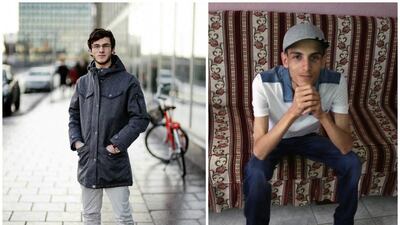BEIRUT // Syria's justice ministry on Wednesday rejected an Amnesty International report of mass hangings of as many as 13,000 people in a prison near Damascus, calling the allegations "totally untrue" and part of a smear campaign.
The ministry's statement, published by Syria's state-run news agency, came a day after Amnesty released its report Human Slaughterhouse: Mass Hanging and Extermination, based on a year of research and interviews with 31 former detainees of the Saidnaya prison near Damascus and over 50 former guards, prison officials, judges and experts.
Amnesty’s report included chilling details from witnesses who saw various stages of the killings, down to the actual implementation and last-minute wishes of the men hanged, most of whom were civilians.
In Damascus, the justice ministry said “misleading and inciting” media outlets carried the Amnesty report with the intention to smear the Syrian government’s reputation on the world stage — particularly after recent “military victories against terrorists groups”. The government refers to all armed opposition as “terrorists”.
It also called the allegations baseless and stated that executions in Syria follow due process and various stages of litigations. It also questioned testimonies of survivors.
“Why didn’t the Syrian authorities execute them and why were they released if others were executed?” it said.
-----------------------------------------------
Reporter's Notebook: A first-hand account by Syrian journalist Zouhir Al Shimale
“In March 2012, one year after the rebellion began, I was protesting against the government when the police attacked, firing their automatic weapons at us.
I tripped while running and they caught me as I lay on the ground. They took me to jail along with other protesters, beating me on the bus on the way there. Some were beaten so bad their arms or noses were broken. They called us terrorists and told us we would die in jail.”
-----------------------------------------------
“The justice ministry denies and condemns in the strongest terms what was reported because it is not based on correct evidence but on personal emotions that aim to achieve well-known political goals,” the statement said.
The ministry also said the report refers to judges and lawyers among those executed. However, there is no such reference in the report — Amnesty only states that it interviewed former judges and lawyers and that human rights defenders were among those jailed in Saidnaya.
Saidnaya has become the main political prison in Syria since 2011, according to witnesses. Amnesty said Damascus did not respond to its request for comment ahead of the report’s publication. Syrian government officials rarely comment on allegations of torture and mass killings.
In the past, they have denied reports of massacres documented by international human rights groups, describing them as propaganda.
Amnesty said its investigation revealed that Syrian authorities hanged between 5,000 and 13,000 people over the course of four years in Saidnaya — known by detainees as the “slaughterhouse” and operated by the military police. The hangings took place once, sometimes twice a week, after trials that last only a few minutes, the report said.
Other rights groups have found evidence of widespread torture leading to death in Syrian detention facilities. In a report last year, Amnesty found that more than 17,000 people have died of torture and ill-treatment in custody across Syria since 2011, an average rate of more than 300 a month.
* Associated Press

